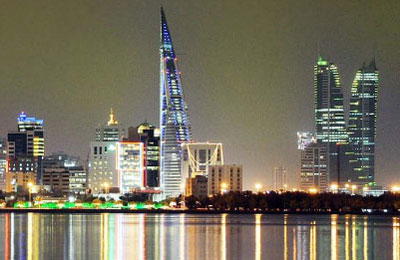
Global investments ‘major boost for Bahrain’
Manama, November 5, 2013
Bahrain is supported by its strongly positive net international investment position, which was 83 per cent of GDP at the end of 2012, a top rating agency said.
"Moreover, the current account balance has consistently been in surplus since 2003, and we expect it to remain in surplus in 2013 and 2014," Moody's said in its Bahrain Credit Analysis, reported the Gulf Daily News, our sister publication.
Bahrain also has a relatively high level of GDP per capita and enjoys strong support from its fellow GCC members, it said.
"A potential boost to growth may come from the $10 billion aid package received from the GCC following the unrest in 2011," Moody's said.
The funding is expected to support Bahrain's economy over the next 10 years, it said.
Thus far, agreements worth $1.3 billion have been signed with Kuwait and $448 million with Saudi Arabia in early 2013, with more than 60 per cent going to housing projects, the agency added.
Bilateral aid is likely to lift construction activity domestically.
"GDP per capita in Bahrain is high at almost $29,000 in purchasing power parity terms as of 2012, according to the IMF," Moody's assistant vice-president and senior analyst Steffen Dyck said.
"This is comparable to countries like New Zealand (Aaa, stable), Oman (A1, stable), or Slovenia (Ba1, negative), and exceeds the Baa median of $16,200.
"Before the global financial crisis, Bahrain had positioned itself as a regional hub for offshore banking and tourism, benefitting from buoyant economic growth in the region.
"The country maintains strong economic linkages with Saudi Arabia which have been reinforced since the unrest in 2011.
"Despite having the most diversified economy in the GCC, hydrocarbons account for 25 per cent of GDP and 62 per cent of export revenue. Nevertheless, its growth is less volatile than its peers as a result of its diversification."
Bahrain's financial sector's contribution to GDP remains stable at 15 per cent, the agency said.
"The development of Bahrain's tourism sector has been based on the country's modern infrastructure. Although the sector impacted by the unrest, it has recovered strongly in 2012.
"The manufacturing and trade sectors benefit from strong economic ties with Saudi Arabia and a more cost-efficient framework than many GCC countries. Key areas of growth include Alba, which operates one of the world's largest smelters, petrochemicals and ship repair facilities," the agency said.
"Official data suggest that foreign investment is returning. In addition to crude oil, Bahrain is a significant gas producer (257,000 barrels of oil equivalent per day in 2012), but domestic production is struggling to keep up with domestic consumption, mostly industrial.
"However, a new LNG import terminal is under construction which should add to the manufacturing sector's energy feedstock," the agency said.
"Bahrain is stepping up its refinery activity - a new pipeline is planned which should increase import capacity from Saudi Arabia to 350,000 bpd, while the Sitra refinery would increase capacity by 100,000 bpd by 2017.
"Policy credibility and effectiveness, as measured by past inflation performance, are very strong. Compared to its rating peers, Bahrain has both lower and less volatile inflation rates.
"Financial services are regulated by the central bank, which has built a good reputation as an effective banking regulator," the agency said.
"The government's funding costs remain at manageable levels, as only a small portion of government debt is in the form of traded bonds," Moody's added. – TradeArabia News Service







